An extraordinary soup kitchen in Milan - the Refettorio Ambrosiano - run by internationally renowned chef Massimo Bottura and 40 of the world's best chefs including Ferran Adria, Rene Redzepi, Alain Ducasse, Daniel Humm and many others. All food served was made from the food waste of Expo Milano 2015. The film also tells the compelling story of several of the refugees and homeless the Refettorio served.
Related Movies

Gutbuster (2017)
Part food doc, part comedy special, Gutbuster follows unhealthy stand-up comedian Dave Stone on a cross-country tour after a sobering health diagnosis pushes him toward a major lifestyle change. He talks to farmers, doctors and academics by day, compiling his own idiot's guide to the modern American meal, then makes funny about his experiences onstage by night.
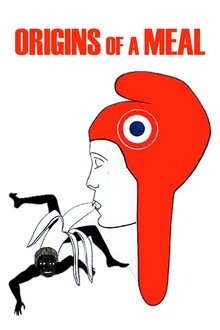
Origins of a Meal (1979)
Bananas, eggs, and tuna: three basic foodstuffs with three wildly different points of origin. Moullet begins with these on his plate but constructs his film by working backwards and finding the sources for these items and how they reach our plates. As Moullet’s investigation deepens, however, the film moves beyond the confines of a simple exploration of food origins into more political and social realms, not only relating to food but also to the medium of film.
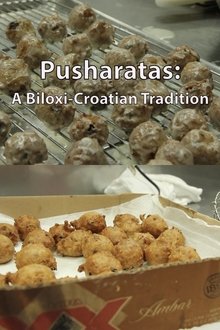
Pusharatas: A Biloxi-Croatian Tradition (2013)
Every year at Christmas, the women of the Slavonian Ladies' Auxiliary celebrate their culinary heritage by getting together to make pusharatas (a type of Croatian doughnut) for the people of Biloxi, Mississippi.
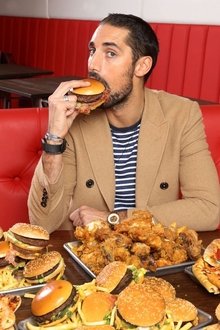
The Junk Food Experiment (2019)
Celebrity test subjects try junk food overeating in a intresting experiment

Food Evolution (2017)
As society tackles the problem of feeding our expanding population safely and sustainably, a schism has arisen between scientists and consumers, motivated by fear and distrust. Food Evolution, narrated by Neil deGrasse Tyson, explores the polarized debate surrounding GMOs. Looking at the real-world application of food science in the past and present, the film argues for sound science and open-mindedness in a culture that increasingly shows resistance to both.
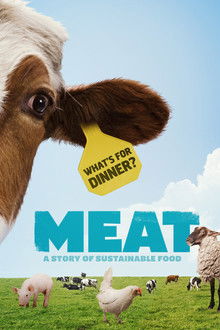
Meat (2018)
Meat is the modern story of the animals we eat, as told by the people who never get to say their piece - from the solitary hunter who believes everyone needs to be educated about their food, to an industrial pig farmer who argues that money isn't his primary driver.
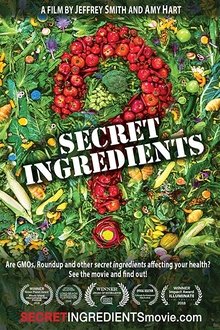
Secret Ingredients (2018)
While the debate continues about GMOs, Roundup and other toxic pesticides, this powerful film shares remarkable stories of people who regain their health after discovering the secret ingredients in their food and making a bold commitment to avoid them.

Food, Inc. (2008)
Documentary filmmaker Robert Kenner examines how mammoth corporations have taken over all aspects of the food chain in the United States, from the farms where our food is grown to the chain restaurants and supermarkets where it's sold. Narrated by author and activist Eric Schlosser, the film features interviews with average Americans about their dietary habits, commentary from food experts like Michael Pollan and unsettling footage shot inside large-scale animal processing plants.
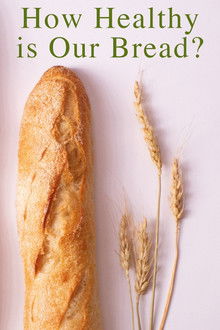
How Healthy Is Our Bread? (2018)
More and more people are suffering from wheat and gluten intolerance. Wheat protein was long considered to be the cause of this scourge, and today gluten free products are on all the supermarket shelves. However, there is now increasing suspicion that it is not wheat but how it is processed that makes bread a potentially unhealthy food. Industrial processes simply do not give bread enough time to mature. More and more bakeries are reacting to this by introducing former production methods and ingredients such as champagne rye, emmer or in vogue chia seeds. Bread is baked according to old recipes, sometimes using home grown and home milled grains.

Bread (2014)
A unique project, the popular science series "Bread" is shooting around the world, interviews with scientists and world-class experts. There are 4 series in the project: "Immortality", "Money", "Hunger" and "Gene". This is a story about how bread controlled the destinies of continents and empires, how the rise of some civilizations and the fall of others depended on it, how in different countries and at different times it performed the function of money. This is the first time such a complete study of bread and grain is being carried out on a television screen. The focus is on the most interesting events in the history of Russia, Italy, France, Germany, England, China, Egypt and other countries.

Bread. Gene (2014)
Each grain crop - wheat, rye, rice and corn - has been "creating" a special type of person for centuries. For example, rye formed the Slavic culture, wheat influenced the inhabitants of almost all of Central Europe and a significant part of Asia, corn formed the inhabitants from Mexico to Nicaragua, and rice - representatives of Japan, India and China. Today, genetic engineers are trying to create the bread of the future. It is likely that after some time we will have three-dimensional food printers in our kitchens that will be able to "print" buns, loaves or confectionery. However, scientists are convinced that only part of the components for the "printer" will be chemical, and the rest of the components will continue to be grown on earth. At the same time, some researchers believe that genetic engineering may turn out to be a "Pandora's box", while others are sure that they can no longer do without it.
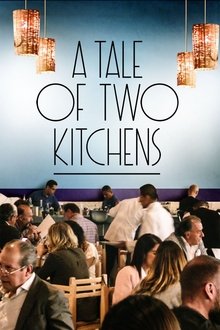
A Tale of Two Kitchens (2019)
Two countries, two restaurants, one vision. At Gabriela Cámara's acclaimed Contramar in Mexico City, the welcoming, uniformed waiters are as beloved by diners as the menu featuring fresh, local seafood caught within 24 hours. The entire staff sees themselves as part of an extended family. Meanwhile at Cala in San Francisco, Cámara hires staff from different backgrounds and cultures, including ex-felons and ex-addicts, who view the work as an important opportunity to grow as individuals. A Tale of Two Kitchens explores the ways in which a restaurant can serve as a place of both dignity and community.
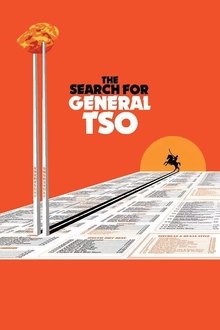
The Search for General Tso (2014)
From New York City to the farmlands of the Midwest, there are 50,000 Chinese restaurants in the U.S., yet one dish in particular has conquered the American culinary landscape with a force befitting its military moniker—“General Tso’s Chicken.” But who was General Tso and how did this dish become so ubiquitous? Ian Cheney’s delightfully insightful documentary charts the history of Chinese Americans through the surprising origins of this sticky, sweet, just-spicy-enough dish that we’ve adopted as our own.

Clarissa & the King's Cookbook (2008)
Clarissa Dickson Wright tracks down Britain's oldest known cookbook, The Forme of Cury. This 700-year-old scroll was written during the reign of King Richard II from recipes created by the king's master chefs. How did this ancient manuscript influence the way people eat today? On her culinary journey through medieval history she reawakens recipes that have lain dormant for centuries and discovers dishes that are still prepared now.
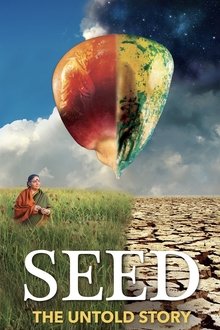
SEED: The Untold Story (2016)
A film about the importance of heirloom seeds to the agriculture of the world, focusing on seed keepers and activists from around the world.

We Feed the World (2005)
A documentary that exposes the shocking truths behind industrial food production and food wastage, focusing on fishing, livestock and crop farming. A must-see for anyone interested in the true cost of the food on their plate.
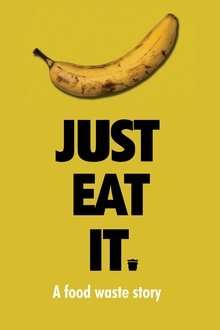
Just Eat It: A Food Waste Story (2014)
We all love food. As a society, we devour countless cooking shows, culinary magazines and foodie blogs. So how could we possibly be throwing nearly 50% of it in the trash? Filmmakers and food lovers Jen and Grant dive into the issue of waste from farm, through retail, all the way to the back of their own fridge. After catching a glimpse of the billions of dollars of good food that is tossed each year in North America, they pledge to quit grocery shopping and survive only on discarded food. What they find is truly shocking.
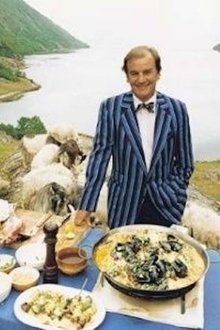
Keith Meets Keith (2009)
Keith Allen meets his long-term hero, Keith Floyd, who transformed the presentation of gastronomy on British television.

Borsch: The Secret Ingredient (2020)
Meat-based or vegetarian, with or without beans, potatoes in or out, tomato sauce or real tomatoes added, dried mushrooms or smoked pears, or maybe just mom's borsch? Which variant should be considered "the real thing"? The battles have been lasting for years. That is why Yevhen Klopotenko, a well-known chef, sets out on a journey across Ukraine to uncover the most fascinating borsch recipes and to find the secret ingredients which make this dish unique.

Fragile Harvest (1986)
How safe is the future of the world’s food? This documentary explores a growing crisis in world agriculture. Plant breeding has created today’s crops, which are high yielding but vulnerable to disease and insects. To keep crops healthy, breeders tap all the genetic diversity of the world’s food plants. But that rich resource is quickly being wiped out. (NFB)